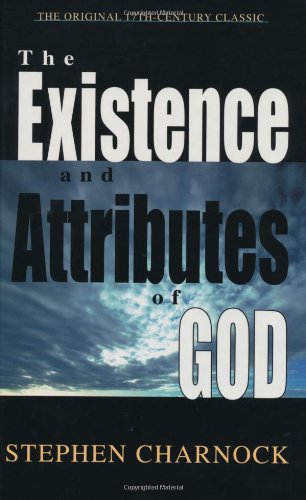A Brief Book Summary from Books At a Glance
By Benjamin Montoya
Editor’s Note:
Today we are pleased to present a condensed version of Puritan Stephen Charnock’s famous, massive, and profound work on the existence and attributes. Its daunting size often puts off readers, even though the time and effort given to it is more than repaid. This abbreviated version (much longer than our usual Book Summary but covering both volumes of Charnock) does not do justice to the work, but we trust you will find it profitable also as an introduction to this most important topic of study.
About the Author
Stephen Charnock was an influential Puritan minister whose writings are still read today.
Introduction
God’s attributes are among the most important topics within theology; it is through them that we come to know him better. Ever want to consider them further? If so, you will struggle to find a more in-depth and pastoral treatment of them than what Charnock presents. Given that he was a Puritan writer, he utilized an approach to reasoning that some may find foreign today. Nevertheless, it is worth the effort to preserve in this “foreignness” for the fruit that is Charnock’s content.
Contents
Discourse I: On the Existence of God
Discourse II: On Practical Atheism
Discourse III: On God’s Being a Spirit
Discourse IV: On Spiritual Worship
Discourse V: On the Eternity of God
Discourse VI: On the Immutability of God
Discourse VII: On God’s Omnipresence
Discourse VIII: On God’s Knowledge
Discourse IX: On the Wisdom of God
Discourse X: On the Power of God
Discourse XI: On the Holiness of God
Discourse XII: On the Goodness of God
Discourse XIII: On God’s Dominion
Discourse XIV: On God’s Patience
Summary
Discourse I: On the Existence of God
David writes in Psalm 14:1, “The fool says in his heart, ‘There is no God.’” It is perhaps the highest point of foolishness to deny the existence of God. There are several reasons that can be listed as to why. First, the existence of God has been acknowledged by all nations, in all places, and in all ages. There has never been a nation that has existed that has not acknowledged this point. Recognizing the existence of God is so innate within us.
Second, it is foolishness to deny what all creatures and things in the world manifest. Psalm 19:1–4, “The heavens declare the glory of God.” The things in the world declare the existence of God in their harmony, preservation, and how they answer their several ends.
Third, it is foolishness to deny that which a man’s own nature bears witness to him. The Bible explains that we are fearfully and wonderfully made (Ps 139:14). When we consider how God has made our bodies to fit together so perfectly, such that the important and essential parts are so guarded, we have reason to acknowledge the existence of God.
Fourth, it is foolishness to deny the being of God which is witnessed to by the extraordinary occurrences in the world. When we consider the judgments, miracles, and the accomplishments of prophecies in Scripture, we are faced with the reality of the existence of God.
This great topic has several important applications for our lives today.
- First, if atheism, denying the existence of a god, is true foolishness, then it is destructive both the world and the atheist himself.
- Second, it should make us realize the lamentable nature of our day that atheism is so common.
- Third, if we understand the deep level of foolishness that belongs to an atheist for denying the existence of God, then we, as Christians, should be firmly settled in the truth of the existence of God.
- Fourth, if we acknowledge the existence of God, then it would be foolishness not to worship him. If we forget the true nature of God and how majestic He is without worshipping him rightly, He may as well be a God who is forgotten by us, or a God who does not exist at all.
Discourse II: On Practical Atheism
Atheism is a real problem, but what does this look like practically? Coming back to Psalm 14:1, we find a reference to what can be described as practical atheism. This term refers to something that is natural to man in his depraved state and very frequent in the hearts and lives of men. It is not something they were created with originally, but it is certainly a product of the Fall. This entire topic may be summed up in two key points.
First, if it were up to mankind, he would gladly set himself up as king over himself instead of God. “He disowns the rule of God, is unwilling to have any acquaintance with the rule God sets him, negligent in using the means for the knowledge of his will, and endeavors to shake it off when any notices of it break in upon him; when he cannot expel it, he hath no pleasure in the consideration of it, and the heart swells against it.”
Second, if it were up to mankind, he would love to be an end in himself. That is, that everything would serve his desires and pleasures instead of God. In fact, man would rather that anything be the end of all things other than God because man hates God. To make things worse, if a practical atheist says he loves God, it is only because. . .
[To continue reading this summary, please see below....]The remainder of this article is premium content. Become a member to continue reading.
Already have an account? Sign In
